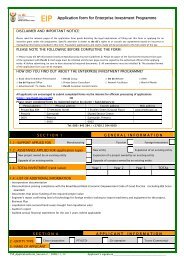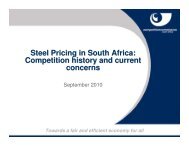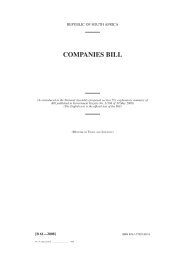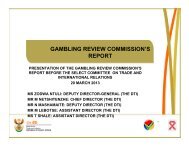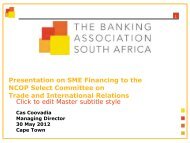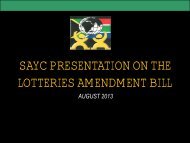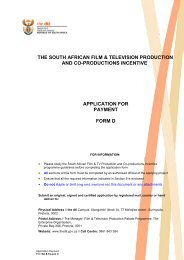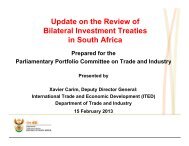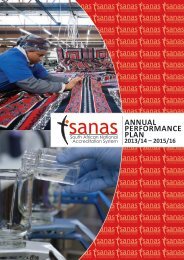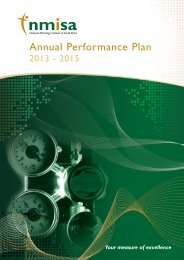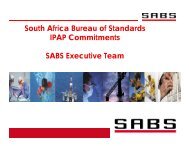Copyright Review Commission Report - ICT Law and Regulation ...
Copyright Review Commission Report - ICT Law and Regulation ...
Copyright Review Commission Report - ICT Law and Regulation ...
- No tags were found...
Create successful ePaper yourself
Turn your PDF publications into a flip-book with our unique Google optimized e-Paper software.
(such as immediate cash flow problems or ignorance about copyright matters) that are generally faced byyoung artists. The fairness of the valuations placed on these assignments is questionable. The CRC believesthat the assignees should be able to recoup their investments within the first 20 years. To provide the artists ortheir heirs with the opportunities to reduce the level of losses that arise as a result of the disparatecircumstances referred to above, the CRC recommends an amendment to the legislation to allow forautomatic reversions of assigned rights after 25 years (from the date of assignment). The recommendation isbased upon the relevant provision in the US <strong>Copyright</strong> Act. But the period proposed is 25 years <strong>and</strong> not 35years, in view of the fact that the period of copyright protection in the US is much longer than in South Africa.11 STATUS OF LOCAL MUSIC CONTENT11.1 BACKGROUND11.1.1. It is a known phenomenon in South Africa that foreign music enjoys far greater market share <strong>and</strong> airplay (as perthe analysis in Table 17) than local music. In response to this, music content quotas were introduced as far backas 1996. Royalty distributions reflect the music usage patterns, with the result that a greater proportion of musicrights royalties are distributed to foreign rights holders (be it directly to affiliated societies or via local publishers).11.1.2. Collecting societies cannot arbitrarily determine that more royalties be distributed to South African rightsholders, as opposed to foreign rights holders. This is because royalty payments are based on the actual usageof a person’s music, not some subjective calculation. A collecting society would be contravening copyright law,especially the national treatment principle embodied in the Berne Convention <strong>and</strong> incorporated in national laws,if it were arbitrarily to decide to keep more royalties in South Africa as opposed to paying them over to foreignrights holders.11.1.3. An attempt is being made to close the loopholes currently hindering the generation of royalty income. Ifsuccessful, significant income will be generated.11.2 ICASA’S ROLE WITH REGARD TO LOCAL MUSIC CONENT11.2.1. The Independent Communications Authority of South Africa (ICASA) is the regulator for the South Africancommunications, broadcasting <strong>and</strong> postal services sector. ICASA was established by the IndependentCommunications Authority of South Africa Act of 2000, as amended.11.2.2. ICASA conducts inspections <strong>and</strong> undertakes content monitoring of the broadcasting industry. This is to ensurethat sound <strong>and</strong> TV broadcast licensees comply with the Electronic Communications Act, No. 36 of 2005, theBroadcasting Act, No. 4 of 1999, prescribed regulations, as well as the terms <strong>and</strong> conditions of their licences. Italso compiles Annual Compliance <strong>Report</strong>s.11.2.3. As part of its m<strong>and</strong>ate, ICASA sets the targets for the radio <strong>and</strong> television broadcasters (e.g. local contenttargets), monitors the level of compliance by the respective parties <strong>and</strong> takes corrective action wherecompliance is inadequate. It does not, however (as the CRC recommends it should), impose as a condition for a- 81 -



